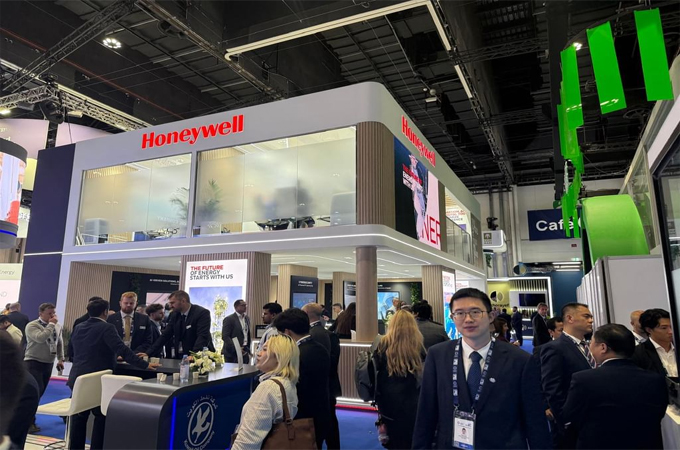
George Bou Mitri, President of Honeywell for the Middle East, Türkiye and Central Asia, affirmed that the UAE has become a global centre for innovation and the deployment of smart solutions in the energy sector, noting that the country’s pioneering digital transformation initiatives in energy represent a world-leading model for building a sustainable future driven by advanced technology and artificial intelligence.
In statements to the
Emirates News Agency (WAM) on the sidelines of the Abu Dhabi International
Petroleum Exhibition and Conference (Adipec 2025), Bou Mitri said that the UAE
presents a unique example of openness, partnership and synergy between the
public and private sectors to develop innovative solutions that make a real
global impact in the energy industry.
“The solutions created
here in the UAE extend their influence far beyond its borders,” he said, adding
that the UAE is leading the shift towards clean energy through major projects
that reduce emissions and improve operational efficiency.
Honeywell, he noted,
is contributing to this vision through landmark projects such as the Ruwais
liquefied natural gas (LNG) project with Adnoc, which is expected to produce
about 9.6 million tonnes annually.
Bou Mitri explained
that the global energy sector is witnessing rapid growth, with global energy
demand projected to rise by 32 per cent by 2050, while electricity demand is
expected to increase by more than 75 per cent during the same period. T
his, he said, calls
for the development of comprehensive technological solutions that balance
rising demand with emission reduction and efficiency improvement.
He pointed out that
the UAE is clearly adopting this approach by integrating advanced technologies
across the energy ecosystem, expanding the use of LNG, hydrogen and solar
energy, and developing sustainable aviation fuel and biofuel to reduce the
carbon footprint across transportation sectors.
Bou Mitri noted that
digital transformation is a cornerstone of the energy future.
He revealed that Honeywell is developing the
region’s first fully autonomous control room powered by agent-based artificial
intelligence in partnership with Borouge.
This will be the first
independent control room in the petrochemical industry capable of managing
operations without direct human intervention, thereby enhancing operational
efficiency.
He also highlighted
that the UAE has become a key destination for developing technologies related
to emissions management and artificial intelligence applications aimed at
improving facility performance and workforce productivity through
digitalisation.
These advancements, he
said, are particularly significant as the global energy sector faces a skills
gap, with more than 50 per cent of its workforce aged over 45.
“Through technology,
we can accelerate the training of young talent and transfer accumulated
expertise to the next generation, ensuring continuous development and effective
operation in the sector,” Bou Mitri said.
He concluded that
energy investments across the region are witnessing strong momentum, expected
to exceed $130 billion this year in oil and gas alone, alongside major
expansions in clean energy investments such as hydrogen, LNG and carbon capture
projects, underscoring the region’s growing role in driving the global energy
transition.









































































